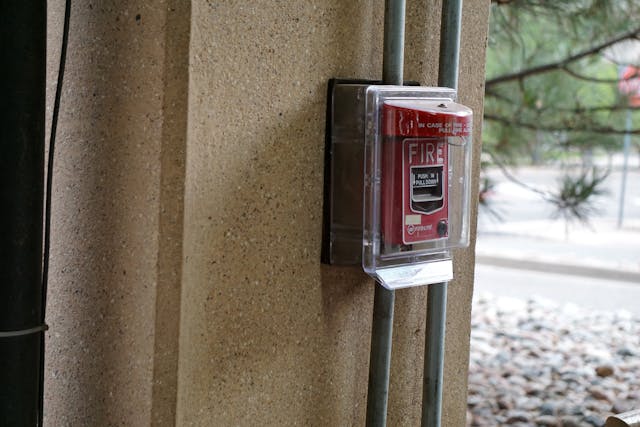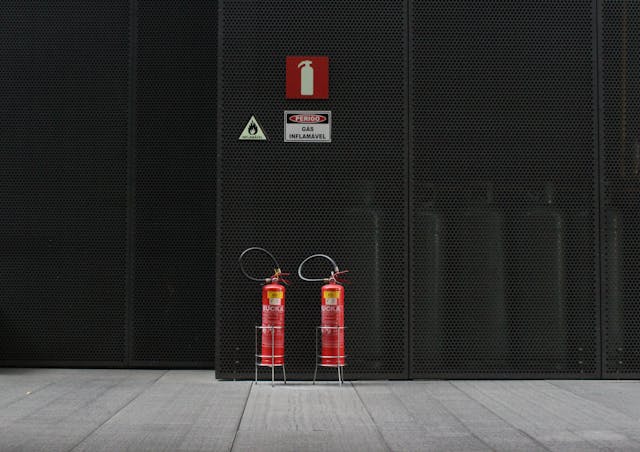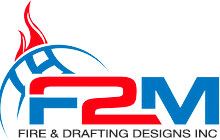How to Choose the Right Fire Suppression System for Your Industry
How do you go about choosing the right fire suppression system for your industry type? Fire suppression systems are crucial in protecting property, equipment, and lives from the devastating effects of fire. However, choosing the right system for your industry can be a complex decision. Here we will guide you through important considerations and options to ensure you select the most effective fire suppression system for your industry.

Fire Suppression System for Your Industry: How to Choose the Right One?
Assessing Fire Risks
Identify Potential Hazards
Understanding the specific fire risks associated with your industry is the first step in selecting the right fire suppression system. Consider the following:
- Types of materials and substances present (flammable liquids, electrical equipment, etc.).
- Processes and operations that could potentially ignite a fire.
- Historical data on fire incidents in similar settings.
Evaluate Fire Load
Fire load refers to the amount of combustible material present in the environment. High fire loads require robust suppression systems capable of handling large fires.
Types of Fire Suppression Systems
Water-Based Systems
Water-based fire suppression systems are the most common and include:
- Sprinkler Systems: These systems are suitable for a wide range of applications, including offices, warehouses, and residential buildings.
- Deluge Systems: Ideal for high-hazard areas such as chemical plants and power stations, where rapid fire suppression is critical.
Foam Systems
Foam suppression systems are effective in controlling fires involving flammable liquids. They work by forming a blanket over the fuel, preventing oxygen from reaching the fire.
- Applications: Aircraft hangars, fuel storage facilities, and industrial plants.
Gas-Based Systems
Gas-based fire suppression systems use inert or chemical gases to extinguish fires without causing damage to sensitive equipment.
- Inert Gas Systems: Use gases like nitrogen and argon. Suitable for data centers, server rooms, and telecommunication facilities.
- Chemical Gas Systems: Use agents like FM-200 or Novec 1230. Ideal for protecting valuable electronics and archival storage.

Specialized Systems
Certain industries may require specialized fire suppression systems tailored to specific risks.
- Kitchen Fire Suppression Systems: Designed to handle grease fires in commercial kitchens.
- Vehicle Fire Suppression Systems: Protect heavy machinery and vehicles in mining, forestry, and transportation sectors.
Compliance and Regulations
Industry Standards
Ensure that the fire suppression system you choose complies with industry-specific standards and regulations. Familiarize yourself with codes from organizations such as:
- National Fire Protection Association (NFPA).
- Occupational Safety and Health Administration (OSHA).
- Local fire safety authorities.
Insurance Requirements
Check with your insurance provider to understand any specific requirements they may have regarding fire suppression systems.
Installation and Maintenance
Professional Installation
Proper installation is critical to the effectiveness of your fire suppression system. Ensure that the system is installed by certified professionals who understand the unique needs of your industry.
Regular Maintenance
Routine maintenance and inspections are essential to keep your fire suppression system in optimal condition. Schedule regular checks and servicing to ensure the system functions correctly when needed.
Cost Considerations
Initial Investment
Consider the initial cost of purchasing and installing the fire suppression system. While some systems may have higher upfront costs, they may offer better protection and lower long-term expenses.
Long-Term Costs
Evaluate the long-term costs associated with maintenance, inspections, and potential system upgrades. Investing in a reliable system upfront can save money in the long run by preventing fire-related damages and downtime.
Choosing the Right Fire Suppression System for Your Industry: Conclusion
Choosing the right fire suppression system for your industry is a critical decision that requires careful consideration of fire risks, regulatory requirements, and cost factors. By understanding the unique needs of your industry and working with experienced professionals in fire suppression system design and installation, you can ensure that your fire suppression system provides optimal protection.
Call Fernandez at F2M Inc. for Fire Sprinkler System Design
At F2M Fire & Drafting Designs Inc., we specialize in designing fire suppression systems for a wide range of industries. Contact us today to discuss your specific fire protection needs and find the best solution for your business.
F2M Fire & Drafting Designs Inc.
Fernandez McKenly
31 South Street, Suite 3S-4
Mount Vernon, NY 10550
(718) 928-3009
info@f2mfadds.com
Protect your industry with the right fire suppression system—let us guide you through the process.
